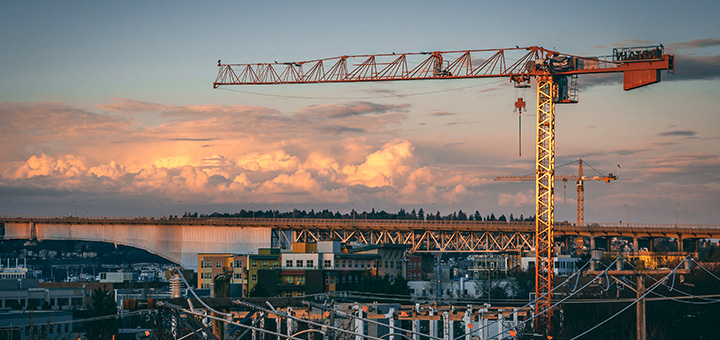1. Energy Transition and Decarbonisation Pressures
One of the most significant challenges facing the UK utilities sector is the urgent need to transition to a low-carbon energy system. The UK government has set ambitious targets to achieve net-zero greenhouse gas emissions by 2050, placing immense pressure on utility companies to decarbonize their operations. This involves phasing out fossil fuels, particularly in electricity generation, and increasing reliance on renewable energy sources like wind, solar, and hydrogen.
However, this transition is fraught with difficulties. The intermittent nature of renewable energy sources requires substantial investment in energy storage solutions and grid infrastructure to ensure reliability and stability. Furthermore, decarbonizing the heating and transport sectors, which are major contributors to the UK’s carbon footprint, remains a complex and costly endeavour. The shift towards electric vehicles (EVs) and the electrification of heating systems, such as through heat pumps, will place additional strain on the electricity grid, necessitating significant upgrades.
2. Aging Infrastructure and Investment Needs
The UK utilities sector is burdened with aging infrastructure, much of which is nearing the end of its operational life. This is particularly true for the water sector, where many pipelines and treatment facilities were constructed decades ago and are now prone to leaks, bursts, and inefficiencies. Similarly, the electricity grid, built for a different era of energy consumption, is struggling to cope with the demands of a modern, decentralized energy system.
Addressing these infrastructure challenges requires substantial investment. However, securing the necessary capital is challenging in an environment of regulatory uncertainty and economic volatility. Utility companies must balance the need for infrastructure upgrades with the pressure to keep costs down for consumers, who are already facing rising utility bills amid the cost-of-living crisis.
3. Regulatory and Political Uncertainty
The UK utilities sector operates within a highly regulated environment, with regulatory bodies such as Ofgem (Office of Gas and Electricity Markets) and Ofwat (Water Services Regulation Authority) overseeing pricing, service standards, and investment decisions. While regulation is necessary to protect consumers and ensure fair competition, the sector is currently grappling with significant regulatory and political uncertainty.
Frequent changes in government policy, particularly around energy pricing, environmental targets, and infrastructure development, create an unstable operating environment for utility companies. For example, debates over energy price caps and the funding of renewable energy projects have led to uncertainty in the sector, making long-term planning difficult.
Moreover, the ongoing political discussions surrounding the future of the UK’s energy market, including the potential nationalization of certain utilities, add another layer of uncertainty. This can deter investment and hinder the sector’s ability to respond effectively to the challenges it faces.
4. Climate Change and Extreme Weather Events
Climate change poses a dual challenge to the UK utilities sector. On one hand, utilities must contribute to the mitigation of climate change by reducing their carbon emissions and adopting sustainable practices. On the other hand, they must also adapt to the impacts of climate change, which are already being felt in the form of more frequent and severe extreme weather events.
For the water sector, climate change is leading to more variable rainfall patterns, resulting in both droughts and floods. Droughts threaten water supplies, particularly in the densely populated southeast of England, while floods can overwhelm wastewater treatment plants and damage infrastructure. Similarly, the energy sector faces challenges from extreme weather, such as storms that can disrupt power supplies and heatwaves that increase demand for electricity.
Utility companies must invest in climate resilience measures, such as flood defenses and drought contingency plans, to protect their infrastructure and ensure the continuity of essential services. However, these investments come at a significant cost, which must be managed alongside other competing priorities.
5. Rising Costs and Affordability Concerns
The issue of rising costs is a major concern for both utility companies and consumers. The UK is currently experiencing high inflation rates, driven by global energy market volatility, supply chain disruptions, and the economic impacts of the COVID-19 pandemic. As a result, the cost of energy, water, and other utilities has surged, exacerbating the cost-of-living crisis for millions of households.
Utility companies are caught in a difficult position: they need to invest in infrastructure, innovation, and sustainability while also maintaining affordability for consumers. Regulatory bodies have introduced price caps to protect consumers, but these caps can limit the ability of utilities to pass on necessary cost increases, leading to financial strain.
Moreover, the rise in energy poverty—where households spend a significant portion of their income on energy bills—has put additional pressure on the sector to find ways to reduce costs without compromising service quality or sustainability goals. Balancing these competing demands is one of the most significant challenges facing the sector today.
6. Workforce Challenges and Skills Shortages
The utilities sector, like many others, is facing workforce challenges, particularly in attracting and retaining skilled workers. As the sector transitions towards a more technologically advanced and decarbonized future, the demand for new skills is growing. However, there is a shortage of workers with the necessary expertise in areas such as renewable energy, digital technologies, and infrastructure maintenance.
This skills gap is exacerbated by an aging workforce, with many experienced workers nearing retirement. Attracting younger workers into the sector is crucial, but it requires investment in training and education programs, as well as efforts to make the sector more attractive as a career choice.
Conclusion
The UK utilities sector is at a crossroads, facing a complex array of challenges that require coordinated action from industry players, regulators, and government. From the urgent need to decarbonize and adapt to climate change to the pressures of rising costs, aging infrastructure, and workforce shortages, the sector must navigate these challenges while continuing to provide reliable and affordable services to the public.
Innovation, investment, and collaboration will be key to overcoming these obstacles. As the sector evolves, those companies that can successfully balance the competing demands of sustainability, affordability, and resilience will be best positioned to thrive in the years ahead.

